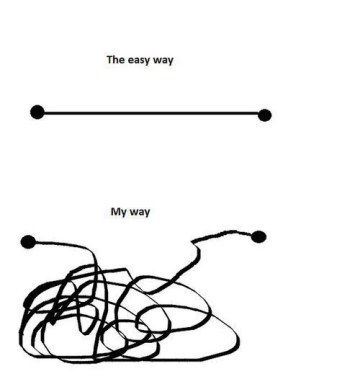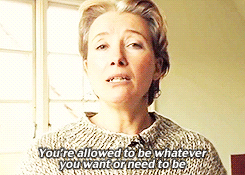where are you going?
—
“I hate the fact you always feel like you have to be going somewhere, like the end destination is to be finished, or to be happy.
But the truth is a lot of us are completely lost, and we don’t know, and that is also a state of mind, to not know who you are and where you’re going. “
=
Lykke Li
–
——-
“I think I was born restless.
This urgency to find meaning, to be meaningful has never left my chest.”
=
Nikita Amin
——–
–
“The only people who ever get anyplace interesting are the people who get lost.”
=
Thoreau
–
———
Well.
I just thought about this as I read a dialogue in a book I was reading …
“You were the lost gentleman who wasn’t sure what he was looking for … did you find it?”
“I’m not sure. Perhaps.”
–
So.
This made me think … ‘where are you going’ very often feels a lot like ‘lost.’
And it surely very often feels a lot like ‘not exactly sure what you are looking for.’
Ok.
Having just said that as an older person … when you are young … say in high school but even college into young 20something … this question “where are you going?” may be the question that keeps young people up at night.
We adults flippantly refer to their irresponsibility and carefree attitudes … and all the while they … well … they worry.
They worry about having a purpose or meaningful life.
They worry about meeting commitments.
They worry about doing something they can be good at.
And while they worry about all that stuff we sit them down and share a bunch of trite soundbites. I sometimes believe we get caught up in the trite “do what you are passionate about” or “find out what you are good at and focus on being the best at it” or any of the gazillion pieces of tripe you can access online.
We are not doing our young any favors by heading them down this rabbit hole.
My favorite presentation to high school juniors & seniors <and the favorite one of the teachers and administration> is one called “do you know where are you going?”
I share things teachers wrote about me in my yearbook.
I share the path of my career.
I share the choices I made throughout Life.
And I also share some aspects of similar choices made by my three best friends from high school.
Basically I share that there is no one path to knowing where to go.
Journeys are journeys and destinations are destinations.
Sound trite? You bet. Trite truth? You bet.
At this age it is very very difficult because you are actually being asked to judge where you are at this exact instant but also judge where you want to go.
Seriously though.
How often are they told that where they are is exactly where you need to be.
<not very often>
It is not often they are told you’ve done the best you could in each moment leading up to now.
It is not often they are told that instead of judging they should just think about what you can do to get to where you would like to be.
Wherever ‘like to be’ is.
—–
“It seems to me that the years between eighteen and twenty-eight are the hardest, psychologically.
It’s then you realize this is make or break, you no longer have the excuse of youth, and it is time to become an adult …
but you are not ready.”
=
–
Helen Mirren
—–
Ok.
Les talk about this whole where you would like to be thing and that amazing angst driven painful brain twisting process.
Being sure of what you want to do and who you want to be in your teens is ludicrous.
Fucking nuts.
Why?
—–
“The truth has a way of changing a person’s plans.”
=
Tris Prior
—–
Life is not just reality … it is a version of truth. And, well, it is a truth borne of experience and not some speculative “I think” type pondering.
I am not suggesting we shouldn’t think about it nor am I suggesting we shouldn’t do our best at the onset of adulthood <or in preparation to adulthood>.
With the cost of a college degree often topping a quarter million dollars we should make sure they think long and hard about what they want to study or what you want to do with the initial steps into adulthood.
In fact … there are some interesting options available to some people … like this online test with a company called Latitude … now called YouScience College Success Profile < I received a note from someone asking if I could change from Latitude because …. could you change YouScience’s product from Latitude to the YouScience College Success Profile? The company changed the name earlier this year > which seems kind of cool:
=
New Online Test Helps Students Choose Career Paths
–
Discover What You’re Wired to Do Well :
YouScience College Success Profile’s online assessment answers what you’ll naturally do best and why through engaging 5 to 12 minute exercises, which reveal 14 of the aptitudes most important to college and career, plus personal interests.
–
Chart a Path to Your Matched Careers:
YouScience College Success Profile’s patent-pending technology accurately matches your natural abilities to more than 500 career options complete with all the actionable information you need to get there.
Tricia’s son Carter is a junior in high school who is thinking about a career in music or sports. While supportive of his interests, Tricia wanted him to look at other possibilities. That’s why she suggested a new online assessment tool called YouScience College Success Profile. According to the CEO of the company that developed the program, it’s designed specifically to help students zero in on a course of study that fits their interests and skills.
“We help them understand themselves in the context of work by testing them and assessing them on the 14 aptitudes or natural abilities that are most important to career choice,” explained Philip Hardin, CEO of Youscience.
This is not like taking an SAT, according to Carter, who took the test back in December. Instead, it focuses on things like eye-hand coordination, idea generation, pattern memory and inductive reasoning. Based on the results, the program matches students’ abilities with careers requiring those skills.
“I got art director, musical composer. I got fireman. I got PI (private investigator) and nurse practitioner,” Carter said.
Other than musical composer, all of the careers were things that Carter had never considered. He was particularly surprised when the test indicated he would make a good medical engineer.
“I didn’t think I wanted to go into medicine,” Carter said. “But then I looked at the description of the job itself and it intrigued me,” he said.
“My mom said, ‘Take this test. I want to make sure this is really what you should be doing’”, she said. “I’d like her to be able to consider other possibilities before it’s too late,” Tricia said. “Before we put $250,000 into an education and she decides she wants to be a painter.”
——
First.
To be clear.
I look at these tests like I do research. Research doesn’t give you answers … it only informs the decision. Far too many people <mostly adults> use these tests to make a decision.
Silly.
And often misguided.
They should be used to inform what you do know … and be part of the decision making process … not the decision itself.
Second.
If it does not make the decision for you … do tests like this really affect kid’s thinking?
Well.
This one kid, Carter, is still thinking about a career in music but he said the test gave him a lot to think about.
Uhm. Thinking is good.
Look.
I do know my parents made me take one of these ‘what kind of career would be good for you’ tests because they were seriously concerned that I was going to waste my Life <by the way … the jury s still out on that>.
My test results?
Number one was Forest Ranger <and I hate camping … and my father’s head would have exploded if I had chosen this as a career>>.
Number two was Engineer <and I had no interest in this … although my parents would have been ecstatic if I had chosen this path>.
Now.
What the fuck was I supposed to do with that?
I had no clue what I wanted to do then.
I do know at some point I got really lucky in that I found that I loved what I did professionally.
But.
People have always wondered why I chose that career and have offered a wide variety of alternative careers they thought I would have been good <better> at.
And that makes me wonder, just on random occasions, if I chose the right or best career for myself.
Anyway.
I imagine the real discussion on deciding where you want to go is that there are a shitload of careers out there.
There are so many careers & professions … most people don’t even know they exist.
If you think you are out of options you are not even close.
Once again.
Where are you going?
At any age … not just the young … while difficult … don’t judge where you are at this exact instant.
I stopped telling myself that I’m lost.
I’m not.
I’m on a road with no destination, I’m just driving with hope that I’ll find a place that I like and I’ll stay there.
I’m not lost, I’m on my way.
=
Ahunnaya
—–
–
Inevitably you are going to make choices.
Because that is what growing up is all about.
Making choices.
And part of growing up is learning to live with the choices.
And while I love to discuss big dreams and big thinking with young people … in the end of almost every “do you know where you are going” discussion <or lecture> I like to end with this thought.
I believe part of growing up encompasses the big … and small … of the inevitable life choices you have to make in figuring out where you are going.
And, oh by the way, most of us never stop growing up.
One of the choices is where you make your stand. Or at least where you make a stand for awhile. Some guy named Charles Eames called it ‘your corner.’
—–
“Choose your corner, pick away at it carefully, intensely and to the best of your ability and that way you might change the world.”
=
–
Charles Eames
—–
Sometimes we make the ‘where are you going’ question and discussion so big and vast <in the attempt to be sure we don’t miss an ‘opportunity’>.
Sometimes we make it so small and almost inconsequential <in the attempt to make it manageable>.
Where are you going is neither big nor small.
It is about owning a corner in the world.
Your corner.
That’s it.
Just find a corner and change the world.
Oh.
And remember … there are at least 4 corners you can explore <that comes from the restless soul that is me>.










Leave a Comment